#nueva cancion
Text
Recordando el alma hermosa y de hermosa voz que fue Víctor Jara, asesinado por estas fechas por fascistas hace 50 años. Ni perdón, ni olvido.

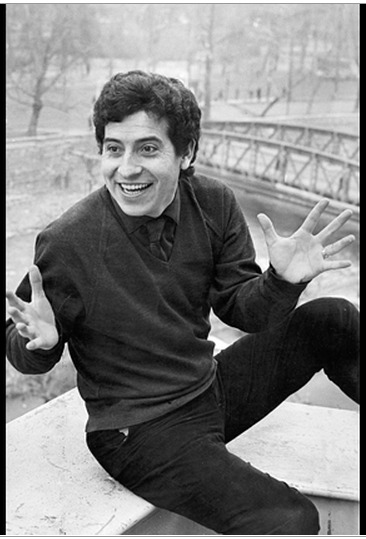
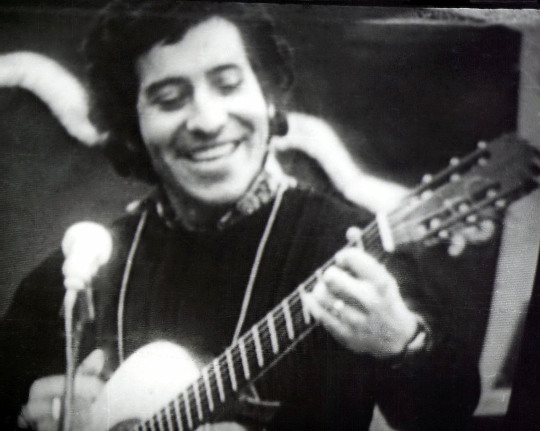
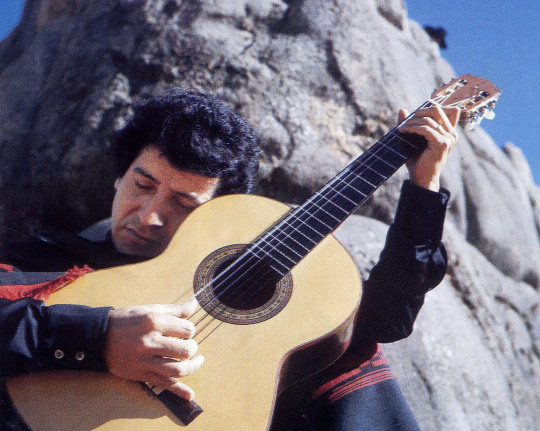
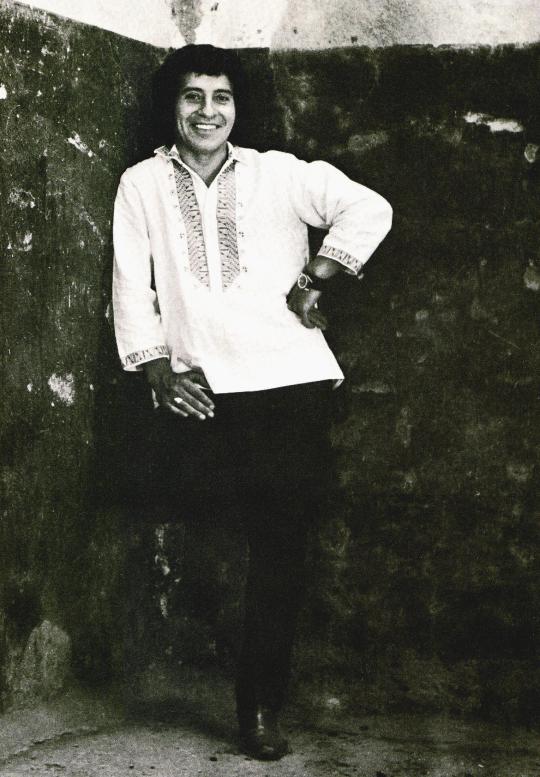
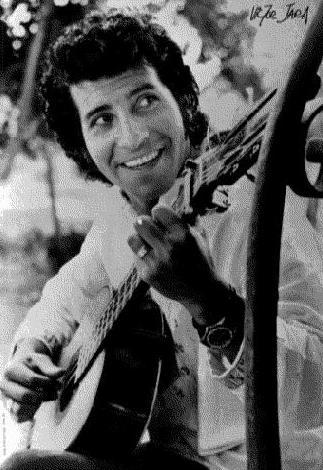

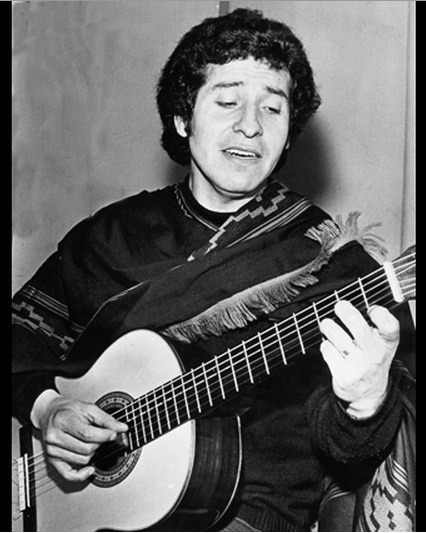
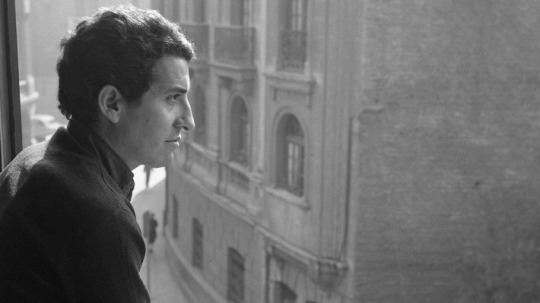
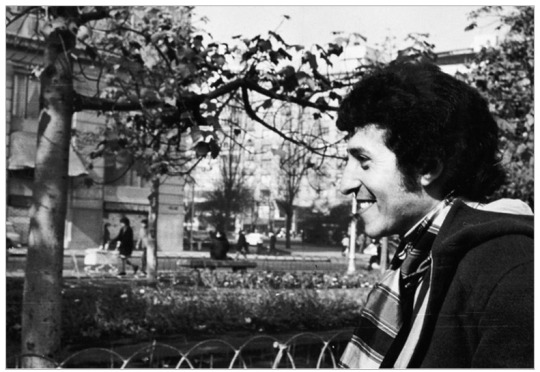


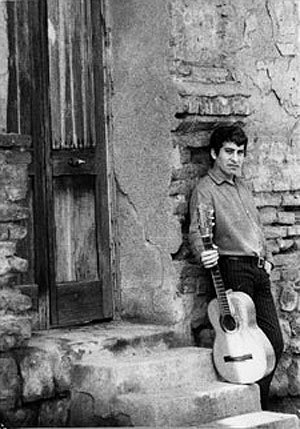
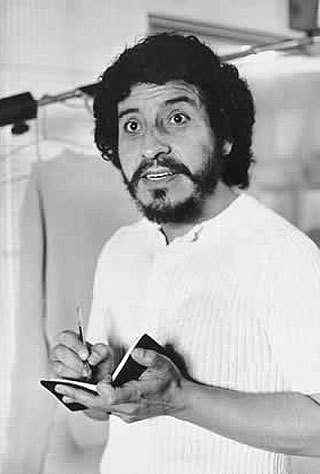
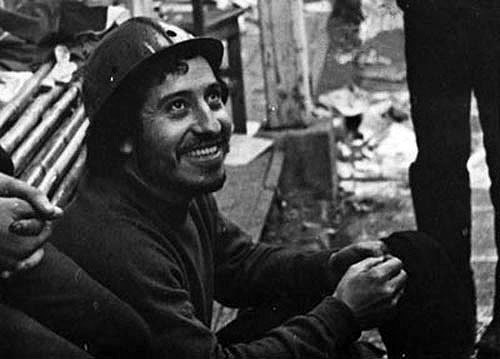
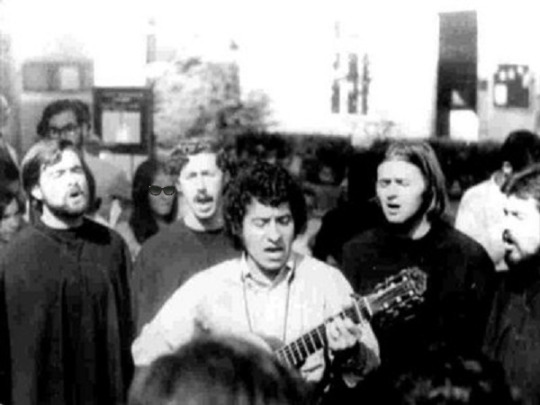
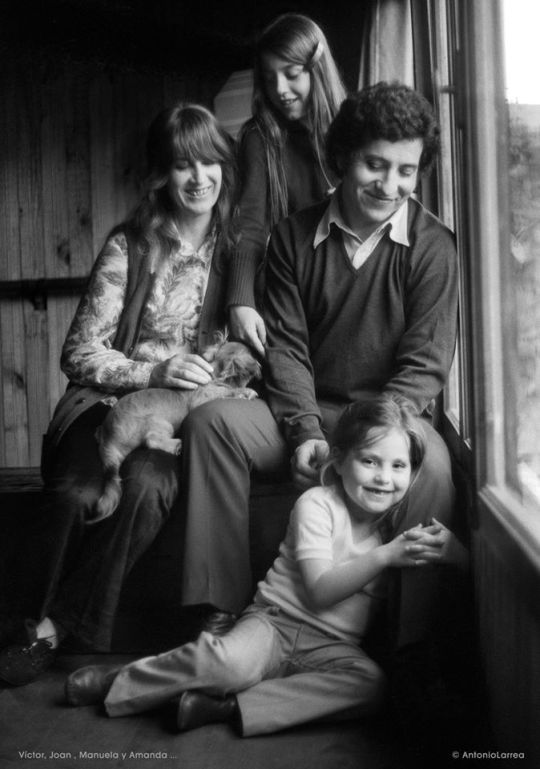

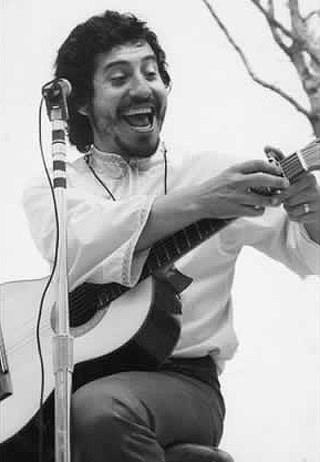
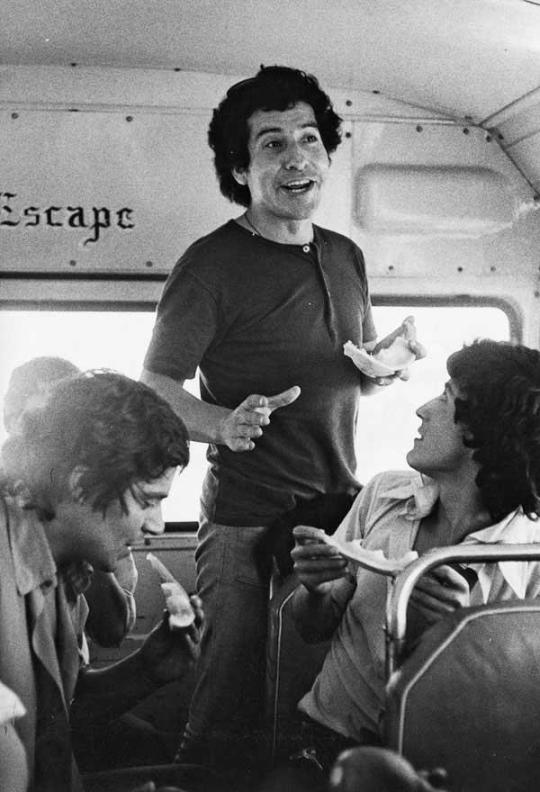

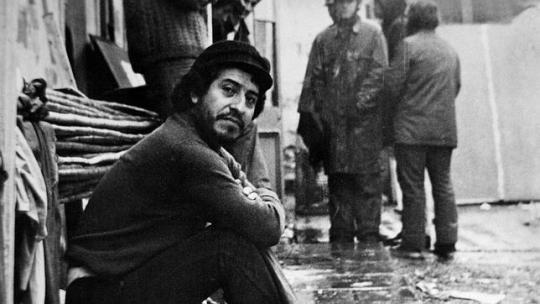
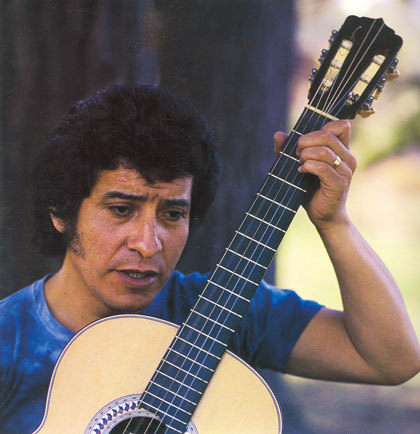
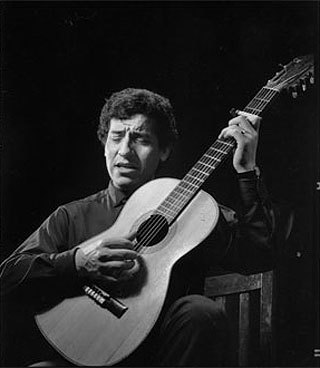
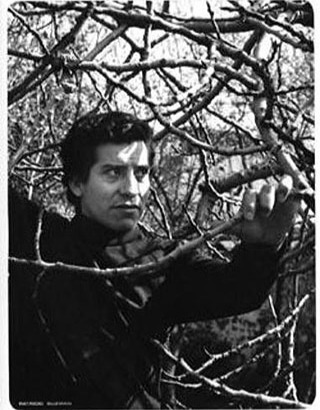
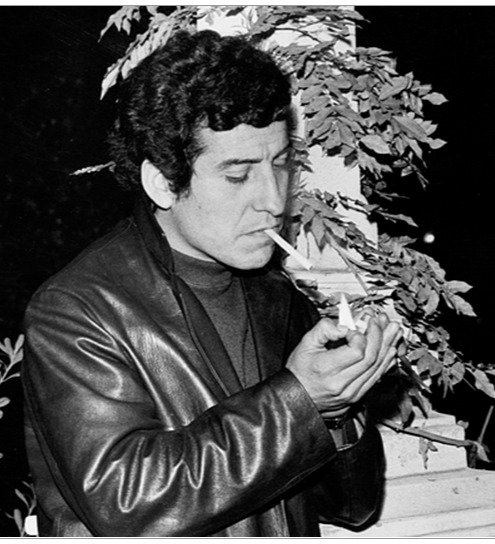
Remembering the beautiful soul with a beautiful voice that was Víctor Jara, murdered around this time of the year by fascists 50 years ago, in 1973. Never forgiving, never forgetting.
#víctor jara#victor jara#nueva cancion#chilean art#chilean music#🇨🇱#chile 🇨🇱#as you can see i choose mostly pictures of him smiling because he was so much more than just a victim and a martyr. 💙#11 de septiembre de 1973
85 notes
·
View notes
Text
207: Atahualpa Yupanqui // El hombre, el paisaje y su canción
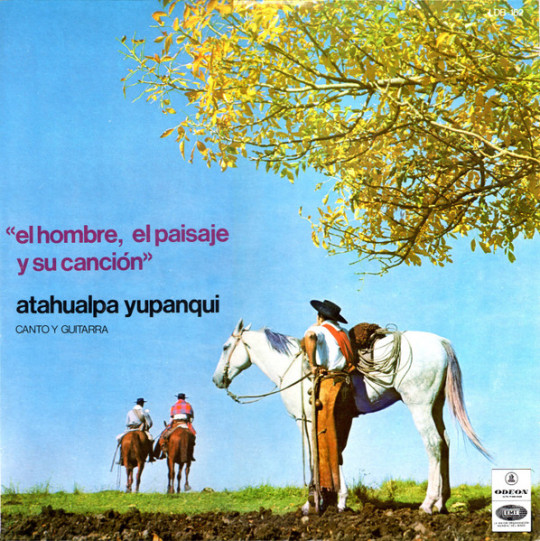
El hombre, el paisaje y su canción
Atahualpa Yupanqui
1969, Odeon
Atahualpa Yupanqui was a titanic figure in Argentine music. As an ethnomusicologist who formed a bridge between various forms of Indigenous folk music and the younger artists of the nueva canción (new song) movement; a first-rate composer; and a political revolutionary imprisoned numerous times for his beliefs, Yupanqui is a fine representative of that era of Latin American creators whose artistic quality was equaled by the courage of their convictions. Due to his Communist Party affiliation, Yupanqui didn’t record much until he was already in his 40s, which robs us of the voice of his youth, but also enforces his image as a fatherly figure, a living link with the past.
youtube
Once he started recording though, the torrent was overwhelming—between his remarkable productivity and the tendency of labels to constantly repackage his work, forging a semblance of a linear discography is beyond my skills. I’m not altogether sure of the provenance of El hombre, el paisaje y su canción (The Man, the Landscape and His Song), a 1969 record I picked up on a lark a few years back that became an instant favourite in the Wifeleft household. There was an album of the same name released the previous year that shares four tracks, suggesting my Hombre may be a compilation—on the other hand, he recorded many of his songs numerous times, so it’s possible these are from an entirely different session. The album certainly sounds as though it was recorded in one sitting.
No matter, this is my favourite of the handful of Yupanqui albums I’ve heard to date. He is presented solo, as usual, accompanied only by his own acoustic guitar, and over a scant 30 minutes or so draws the listener entirely into his world. I feel as though I am watching the master singing for a small audience gathered on his porch, his fingers translating the weariness of the day’s labours into something more somber and romantic, his voice that of a man who understands his role is to witness and recount. The lyrics often look directly at the travails of working people, as on “Trabajo, quiero trabajo” (“Work, I Want Work”) and “Campesino” (“Peasant”), but there is also that mystical element common in Spanish poetry, as on “Guitarra, dímelo tú” (“Guitar, Tell Me”):
Guitar, you tell me
Men are dead gods
Already long collapsed
Not even his dreams were saved
Only the shadow has remained
El hombre also includes a pair of instrumentals that show off the expressiveness of Yupanqui’s playing to great effect—“El llanto” (“Crying”) is as poignant as its title suggests, while “Malambo” (named for an Argentine folk dance) reminds me a bit of the American Primitive fingerstyle associated some distance north with John Fahey.
I doubt there is such a thing as a poor-quality Atahualpa Yupanqui album, and I think any collection would be enriched by his inclusion. He makes a great entry point to South American folk, some of the most timeless and impassioned music of the 20th century.
207/365
#atahualpa yupanqui#argentine folk#argentinia#andean folk#latin american music#nueva cancion#argentine music#'60s music#folk#vinyl album#music review
10 notes
·
View notes
Text
nueva canción my beloved
2 notes
·
View notes
Text
Pero solo soy de carne y hueso
y te sigo amando hasta los huesos
– Tini ( Carne y Hueso )
#tini#tini stoessel#martina stoessel#carne y hueso#hasta los huesos#nueva cancion#la triple t#song lyrics#letras#spanish#spanish singer#argentina#love songs#love story#heartbreak#music#latin american music
15 notes
·
View notes
Text
2 notes
·
View notes
Text
youtube
NUESTRA QUERIDA MARÍA PELAE DEDICA SU ÚLTIMA CANCIÓN A LA LIBERTAD Y A LAS 13 ROSAS FUSILADAS EN LA GUERRA POR SER MUJERES ADELANTADAS, LIBRES DE PENSAMIENTO Y LIBERTARIAS!
MARÍA BIEN MERECE IR CON ESTE TEMA A REPRESENTARNOS EN EUROVISIÓN!
0 notes
Text
youtube
#fantastic#new#nuevo video#nueva cancion#salma ya salama#beautiful#artists on tumblr#talent on tumblr#talented#Youtube
0 notes
Text
Candela 🎶🎵🔥✨
#nueva cancion#nueva música#latin#artist#mexican#independent#creative#indie#dallas#new music#new music friday
0 notes
Link
hola amigos.
cuando comence a hacerla tenia la intencion de realizarla con un genero parecido pero al final se realizo y es una cancion de un genero inventado el cual imita el rap instrumental con base de bateria y los demas instrumentos lo hacen tambien.
espero que les guste mucho.
hello friends.
When I started making it I had the intention of making it with a similar genre but in the end it was made and it is a song of an invented genre which imitates drum-based instrumental rap and the other instruments do it too.
I hope you like it.
Hallo Freunde.
Als ich anfing, es zu machen, hatte ich die Absicht, es in einem ähnlichen Genre zu machen, aber am Ende wurde es gemacht und es ist ein Lied aus einem erfundenen Genre, das trommelbasierten Instrumental-Rap imitiert und die anderen Instrumente das auch tun.
Ich hoffe du magst es.
Ciao amici.
Quando ho iniziato a farla avevo l'intenzione di farla con un genere simile ma alla fine è stata realizzata ed è una canzone di un genere inventato che imita il rap strumentale basato sulla batteria e anche gli altri strumenti lo fanno.
Spero vi piaccia.
1 note
·
View note
Text
Primavera Bipolar
Have you heard this yet? "Primavera Bipolar" by yours truly 🙌 - http://www.reverbnation.com/open_graph/song/32706120
#rockenespañol#cantautor#tumblr music#valencia#musica#rocknroll#rock music#blues rock#rock n roll#nueva cancion#artista
0 notes
Text
Kenia Os - Malas Decisiones. 🩵🔮

1 note
·
View note
Text
Llego tarde pero ayer fue el cumpleaños de uno de mis músicos favoritos. ¡¡Feliz cumpleaños celestial 91 a Víctor Jara!! Tenía una voz y unos textos magníficos. ¡Me encanta este vídeo donde podemos verlo cantar en un concierto y filmado en color! 💙
youtube
1 note
·
View note
Video
youtube
Actuación en el festival Abril para Vivir (2022, Granada). He decidido subir algunos videos que se habían quedado en el "tintero" para preparar un Press Kit que me han solicitado. Así que, allá va esta canción que aún sigue inédita en la distribución: "Reloj de arena".
1 note
·
View note
Text
56: Los Vagos // Un homme a voulu savoir

Un homme a voulu savoir
Los Vagos
1974, Arc en ciel
Well, here’s a record I don’t know much of anything about. Los Vagos were a nueva cancion / nuevo cancionero band of Hispanic (likely Argentine) extraction whose records were released on a French label—hence the French title Un homme a voulu savoir (trans. A Man Wanted to Know) of this Spanish-language release (their third effort as far as I can tell). Los Vagos translates roughly to “The Bums,” which might make the bare-assed cover a visual pun. If that’s the case it’s a bit incongruous, as everything else about the record is very sincere.
The lyrics were composed by Alfredo de Robertis, an Argentine poet and flautist with an interesting-looking discography. While it’d be unfair to judge his words as poetry through the filter of an online translator, what I can parse of it is passionate verse in the visionary tradition. Un homme a voulu savoir is a concept album about a Christ figure who walks among the working poor of an unnamed South American country and is, as is traditional with Christs, crucified for his troubles. This is a pretty explicit Jesus-as-Communist take (sample preaching: “There are hands dirty with / Life, dirt, oil, coal / And other hands, always clean: / Those of the thief”), and the sentiments are deeply felt.
youtube
The musical foundation throughout is acoustic guitar played in Spanish and Argentine styles (God that’s vague, I know), occasionally augmented by flute, marimba, and percussion. The stomping flamenco “El Cristo de los rastrojos” (“The Christ of the Stubble”) works things up to a fine lather early on and the marimba brings a joyous zest to “Vivir es aprender” (“To Live is to Learn”), but most of the record is given over to slower numbers.
The clear highlight to me is “Vidala del hombre libre” (“Vidala of the Free Man”). My research (…) tells me a vidala is an Argentine/Bolivian form, a “musical composition to a slow and melancholic rhythm sung by two voices accompanied by a guitar.” The guitar on “Vidala del hombre libre” ticks a funereal beat, the heart-rending cries of the lead vocalist answered by an echoey harmony in one of the few overt production tricks on the record. It’s a stunning moment, and one well worth seeking out.
On balance, Un homme a voulu savoir is perhaps not top shelf among the South American folk of the era, but it is beautifully sung and played and I’m happy to have it in my collection. Few of the composers or musicians involved in the record have well-documented discographies after this LP, which may augur poorly for their ultimate fate considering the crackdown on leftist artists following Argentina’s military coup of 1976. (De Robertis’ last recording appears to be a 1977 flute version of “Don’t Cry For Me Argentina” from the Andrew Lloyd Webber musical Evita). The fact Los Vagos records were being released and possibly recorded in France at this time is perhaps a positive sign. They left at least this document of their hopes and their convictions.
56/365
#los vagos#nueva cancion#nuevo cancionero#leftist music#argentinian music#music review#vinyl album#'70s music
1 note
·
View note
Text
"Pudiste hablarme claro
No haberme dejado que me haya enterado."
- Disfruta tu viernes (Danny Ocean)
#frases#citas#escritos#frases tristes#citas en tumblr#citas tristes#notas en español#notas tristes#citas en español#notas en tumblr#letra de cancion#cancion del dia#citas de canciones#canciones#mi cancion#nueva cancion#una cancion
1 note
·
View note
Text
Suscribanse a mi canal para el estreno este 28/01
2 notes
·
View notes